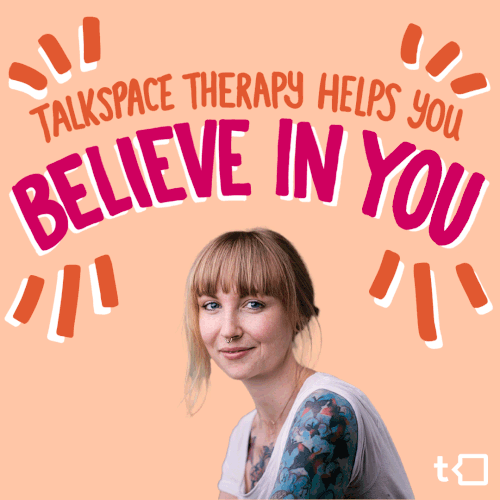Text-based therapy has become one of the easiest and most flexible ways to look after your mental health in the UK. Whether you’re finding it hard to open up in person, want to fit therapy around work or family life, or simply feel more comfortable writing than talking, message-based counselling can be a gentle and effective place to start.
Table of Contents
- Why Text Therapy Is Growing in the UK
- How Text-Based Therapy Works
- Text Therapy vs Crisis Messaging – What’s the Difference?
- Most Popular Text Therapy Apps in the UK (2025)
- What British Users Typically Look For
- Choosing the Right Platform for You
- FAQ — Text Therapy in the UK (2025)
- Bottom Line
Need immediate help?
For free, confidential support, text “SHOUT” to 85258 to reach trained volunteers 24/7, or call Samaritans on 116 123. These services are there for anyone in distress, day or night.
If you’d like ongoing support or structured cognitive behavioural therapy (CBT) with qualified counsellors, the options below can help you start genuine text-based therapy.
Why Text Therapy Is Growing in the UK
More people across Britain are turning to text therapy because it simply fits modern life. Waiting lists for traditional therapy can be long, and not everyone feels at ease on video or in a clinic room. Text therapy offers the same professional support — just written instead of spoken.
- Flexibility: Send messages when it suits you, even late at night, and get thoughtful replies within agreed hours.
- Comfort and privacy: Many people find it easier to express emotions in writing than face-to-face.
- Consistency: Messaging helps you stay connected and supported between live sessions.
- Fits around life: Ideal if you have unpredictable work, travel frequently, or juggle childcare.
How Text-Based Therapy Works
Text therapy usually happens in a secure chat room or app. You’ll be matched with a therapist, fill in a few short questions about what you’d like help with, and then begin messaging at your own pace. Here’s how it tends to look:
Asynchronous messaging: You can write to your therapist whenever thoughts or questions come up. They reply at agreed times (often once or twice each weekday) with reflections, guidance, or small exercises.
Live chat: Real-time text sessions let you and your therapist type back and forth during a booked slot — great if you like immediacy but prefer not to talk out loud.
Hybrid formats: Many platforms mix text with optional video or phone sessions, so you can switch between written and spoken conversations if you wish.
Your first week: Most services begin with a short questionnaire, therapist match, and an introduction to the chat area. You’ll then start sharing what’s on your mind while your therapist offers feedback, coping strategies, and practical CBT-based tools.
Text Therapy vs Crisis Messaging – What’s the Difference?
It’s easy to mix up professional text therapy with crisis text lines such as Shout 85258 or Samaritans. Crisis lines are brilliant if you need someone to listen right now — they’re staffed by trained volunteers offering immediate emotional support.
Text therapy, on the other hand, connects you with a licensed counsellor or psychologist for ongoing sessions, goal-setting, and progress over time. Think of crisis lines as a safety net, and text therapy as the next step when you’re ready to work on things in a structured way.

Most Popular Text Therapy Apps in the UK (2025)
Below are some of the most popular and trusted services currently available to people living in England, Scotland, Wales, and Northern Ireland. Prices are approximate and may vary depending on your plan or any promotional offers.
BetterHelp
- Best for: A wide choice of English-speaking counsellors and flexible communication.
- Why people like it: Quick sign-up, huge therapist network, and easy to switch if the first match isn’t quite right.
- Format: Unlimited messaging plus optional live chat, phone, or video sessions.
- Typical price: Around £65–£90 per week depending on plan.
- Consider if: You want fast access and prefer messaging to start the conversation.
Online-Therapy.com (CBT-focused)
- Best for: Structured cognitive behavioural therapy (CBT) with clear, practical exercises.
- Why people like it: Combines therapist messaging with guided modules, journals, and mood tracking — helpful for anyone who likes seeing measurable progress.
- Format: Messaging, structured programme content, and optional live sessions.
- Typical price: About £40–£70 per week.
- Consider if: You prefer a step-by-step approach with daily feedback and structure.
Mindler (UK & Nordics)
- Best for: Text or video sessions with British and Scandinavian psychologists.
- Why people like it: A clinically solid service that feels modern and easy to use, with a smooth path between text and live video.
- Format: Messaging plus bookable live sessions.
- Typical price: Around £50–£80 per week equivalent (depending on package).
- Consider if: You’d like a mix of written and face-to-face communication from UK-aware clinicians.
IESO Health (NHS-linked typed therapy)
- Best for: People eligible for NHS mental-health services who prefer therapy through live text chat.
- Why people like it: Delivers typed CBT sessions free for many NHS patients through secure, appointment-based text conversations.
- Format: Live text sessions booked in advance, with your therapist responding in real time.
- Typical price: Free for most NHS-referred patients; private sessions also available.
- Consider if: You qualify for NHS support and prefer text over video or phone calls.
Ifeel (multilingual Europe)
- Best for: Bilingual users or expats who’d like therapy in English or another European language.
- Why people like it: Professional yet approachable, with clinicians experienced in anxiety, work stress, and adjustment issues.
- Format: Messaging with optional live sessions.
- Typical price: Roughly £50–£75 per week equivalent.
- Consider if: You move between countries or want a multilingual environment.
7 Cups (free peer support)
- Best for: Instant, anonymous emotional support.
- Why people like it: It’s free, available 24/7, and ideal if you just need to talk to someone before deciding on therapy.
- Format: Peer chat; professional therapy available separately.
- Typical price: Free for peer support; paid upgrades optional.
- Consider if: You’d like to test the waters or need a quick outlet for how you’re feeling.
At-a-glance comparison (UK 2025)
| Platform | Format | Typical weekly price | Highlights | Best for |
|---|---|---|---|---|
| BetterHelp | Messaging + optional live | £65–£90 | Huge therapist pool; quick matching | Flexible, English-speaking support |
| Online-Therapy.com | Messaging + CBT modules | £40–£70 | Structured, practical guidance | Goal-oriented users |
| Mindler | Messaging + video | £50–£80 | UK & Nordic clinicians; easy upgrade | Hybrid text-and-video support |
| IESO Health | Live text (CBT) | Free (NHS) | NHS-supported, evidence-based | Typed therapy through the NHS |
| Ifeel | Messaging + live | £50–£75 | Multilingual; strong for anxiety | Expats and bilingual users |
| 7 Cups | Peer chat | Free | Instant connection | First step before therapy |
What British Users Typically Look For
When choosing a text therapy app, most people in the UK value simplicity, trust, and transparency. Here are the things that matter most:
- Clear pricing in pounds: No hidden fees or complicated conversions.
- Qualified professionals: Registered counsellors or psychologists who understand British mental-health contexts.
- Messaging first: The freedom to stay with written support or add live sessions when you’re ready.
- Easy mobile access: Smooth apps that work around busy schedules.
Therapist insight: Many people find written therapy helpful not only for anxiety but for burnout, adjustment, and relationship stress. The written format encourages reflection and emotional awareness at your own pace.
Choosing the Right Platform for You
Everyone’s different, and the “best” service depends on what you need right now. Here’s a quick guide:
- If you want flexibility and choice: BetterHelp gives you access to one of the largest therapist networks in the world, with easy options to change counsellor if it’s not the right match.
- If you like structure and practical tools: Online-Therapy.com offers step-by-step CBT modules with regular feedback, perfect if you like having a clear plan.
- If you prefer to start by typing and move to video later: Mindler lets you switch smoothly between formats with experienced UK clinicians.
- If you’re bilingual or based across Europe: Ifeel provides multilingual therapists and flexible messaging for international users.
- If you’re undecided or on a tight budget: Try 7 Cups for free peer support — it’s a kind, low-pressure way to start talking.
FAQ — Text Therapy in the UK (2025)
Is text-based therapy effective?
Yes. For many people dealing with anxiety, stress, or low mood, message-based therapy is a proven way to receive consistent guidance and practise coping skills between live sessions. If your needs are more complex, in-person or video therapy might be a better fit — and you can always combine the two.
How quickly will I hear back from a therapist?
Most therapists reply once or twice each weekday. You’ll usually know their schedule in advance, so you can message whenever something comes up and get a response during their next login.
Can I stay with messaging only?
Absolutely. Many people find written support suits them best, and they stay with it long-term. You can add live sessions whenever you want to talk through something in real time.
How much does text therapy cost in the UK?
Most paid plans cost between about £40 and £90 per week depending on the service and whether you include live sessions. Some offer discounts for monthly or quarterly billing.
Is there free text therapy in the UK?
Yes. Shout 85258 and Samaritans (116 123) provide free, confidential text and phone support around the clock. If you’d prefer structured CBT rather than immediate crisis help, some NHS areas also fund typed therapy through IESO Health for eligible patients.
What if the match isn’t right?
Finding the right therapist can take a couple of tries, and that’s completely normal. Most services make it simple to change counsellor so you can continue with someone who feels like a good fit.
Bottom Line
Text therapy gives people across the UK a private, flexible, and genuinely helpful way to get professional support — all from the comfort of a phone or laptop. Whether you start with a free chat service or sign up for ongoing sessions, the most important step is simply reaching out and giving yourself permission to begin.
Explore More From TextTherapy
- What Does Good Mental and Physical Health Mean to You?
- Soula Care — Stress Less, Live More
- Protecting Young Minds — Endless Scrolling
- Mavida — Mental Wellness for Pregnancy & Beyond
- Feeling Lonely? Meet Meeno — The AI That Talks Back
- Online Personality Tests Are Everywhere — But This One Actually Means Something
- The Good Girl with ADHD…
Or learn the basics in our guide:
What Is Text Therapy?











